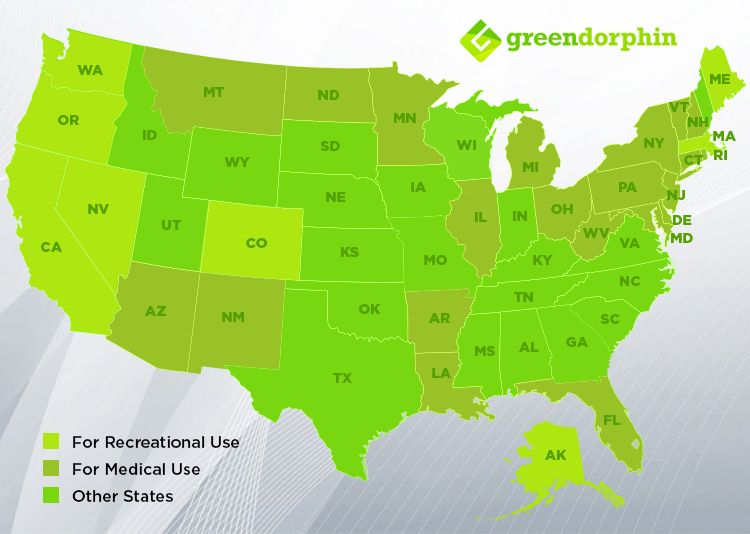The biggest winner, by far, in this November’s elections was the legalization of cannabis. Of the nine states that had marijuana reform of some kind on the ballot, 8 passed reform initiatives – four recreational and four medical.
This means that there are now 30 states where marijuana is legal for either medical or recreational use. 21% of Americans now live in a state where they can get high for fun. The majority of the American population – 4/5ths of the country – now lives in an area with the option of using the drug medically.

What does this mean for the present, future state reform and on a national level?
Recreational Use
As an overview, the following states now have recreational programs either established or now legal and setting up regulatory infrastructure:
While it is one of the newest states to join the recreational ranks as of this November, California, by far, is likely to have the biggest impact on the national debate just because the state (and budding industry) is so huge. This means everything from regulation to consumer safety.
It also may have an interesting impact, finally on employment law. California’s Unruh Act – protecting the rights of people with disabilities, is actually stronger than the federal ADA. Thanks to the anti-pot provisions in the ADA which exclude the protections of the act from any person with a disability who uses marijuana as a medication, people who use marijuana for medical purposes have so far had no protection at work and can be summarily fired, even if enrolled in a state program.
This is likely to change in California and hopefully, have a roll on the impact of both the state and federal level.
Medical Use
Medical use of some kind is now legal in the following states:
This means that patients have at least some access to medical marijuana, although, in certain states, like New York and Minnesota, in particular, patients have very few options available to them. In others, like Washington State, the prevailing attitude has been to roll the entire industry into a recreational model ill-suited for patients.
No matter the victories on election day, the biggest questions now pending are for patients on several levels (the biggest one being employment rights for medical use). Again, however, this is likely to be addressed via the recreational front, because California’s overall labor law protections are likely to also cover not only patients but recreational users who are able bodied.
The biggest issue, however, is how and when marijuana will actually be rescheduled at the federal level. And despite all the gains at the ballot box over the last four years, this is still likely to be a major federal battle. The reason? Likely incoming Attorney General Jeff Sessions is a rabid anti-pot proponent.
And while the issue is popular with voters, powerful forces, namely the established pharmaceutical industry, still widely oppose the idea of covering marijuana (as a raw product) under health insurance. That means there are likely to be at least several fits and starts to the idea of rescheduling on a federal level. On a practical level, don’t look for this issue to be raised in Washington D.C. before the midterms.
And while Donald Trump supposedly supports medical use, there is at present no real protection for the millions of patients who have signed up to state databases as patients on the federal level.
Other Issues Inherent In The Debate

One of the other huge issues now looming of course is interstate trade and regulation – particularly given the fact that the entire west coast has now legalized recreational use, and further, Canada is now in the international export business. While it is highly unlikely that interstate trade restrictions will be changed before cannabis is rescheduled federally, there are likely to be interstate agreements that may ease restrictions on at least multi-state presence for businesses, particularly on the West Coast.
Banking issues are also a huge and pressing concern for everyone in the legal pot business these days. To date, most attempts to create marijuana friendly business banking opportunities have fallen flat because of the fear of federal banking regs. This is not likely to go away, particularly given the flavour and tone of the Justice Department. That said, California may, again, turn the tide here.
Moving Forward
Regardless of the many challenges that still remain, however, one thing is crystal clear. Marijuana legalization is on a tide that cannot be turned back. The real question is not if federal reform happens, it is when and in what form.
What is the current status of Marijuana reform in your state or country?
Share with us in the comments below!
- Guenter Weiglein – The Persevering Patient - July 7, 2017
- Dr Peace – A German Cannabis Doctor On The Go - July 5, 2017
- The German Marijuana Edibles Market - July 3, 2017


